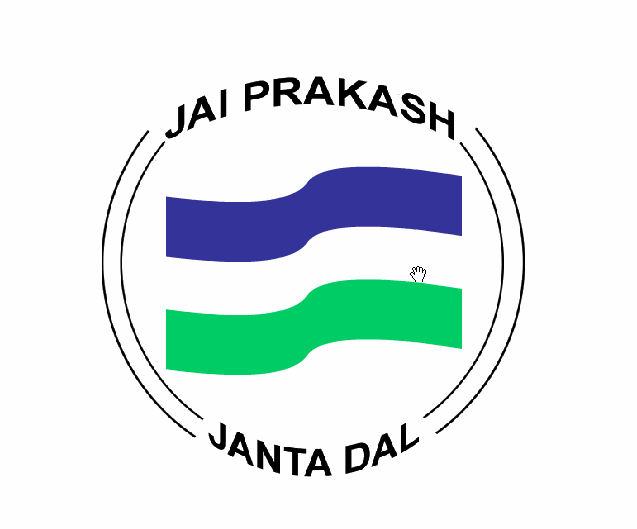British statesman and two-time Prime Minister Lord Palmerston in the 1860s had stated that ‘nations have no permanent friends or allies, they only have permanent interests.’ This can aptly be applied to today’s state of Indian politics and its political parties, where constant changing power dynamics spring up surprises and throw up unexpected coalitions.
Fuelled by the politician’s desire to gain access to unbridled power so as to fulfill a lifetime ambition; mergers, partnerships or even being strange bedfellows have often transcended ideological differences to bid for power. From a left to right grand coalition coming together to oust Indira Gandhi in 1977, to a red tag communists propped up congress led UPA-1 in 2004 attempting to drive a market reform agenda, the country has seen them all.
Media reports of a mighty coalition to challenge the domain of BJP being worked out between Lalu Prasad Yadav and Mulayam Singh Yadav, so at to rehabilitate the old Janta Dal family is being keenly watched. The coalition, likely to be named Samajwadi Janta Dal, intends to include Lalu’s Rashtriya Janta Dal (RJD) led by Lalu, Mulayam’s Samajwadi Party (SP), Nitish Kumar’s Janta Dal (United) JD(U), Deva Gowda’s Janta Dal (Secular) JD(S) and OP Chautala’s Indian National Lok Dal (INLD).
It appears to be a last ditch effort of these fading politicians to revive their dwindling clout and stick to whatever little is left of their power. Their power having shrunk is evident from the numbers they have in the 16th Lok Sabha. All of them put together have less than 20 MPs in Lok Sabha, with most being from the all powerful political family members.
Success of BJP in the Lok Sabha and state elections of Maharashtra and Haryana state elections has pushed Congress – the grand old party, to the fringes of India’a political landscape. Given the opportunistic nature of the leaders of the parties aspiring to form the Samajadi Janta Dal, they are hoping to replace the vacuum created by the sheer disintegration of Congress.
The RJD, SP, JD(U), JD(S), INLD at the zenith of their powers were unable to extend their influence beyond the borders of their own states .The Lalu led RJD was a major force in Bihar during the 1990s, where he was in power for almost 15 years. But even during those heydays in RJD failed to expand beyond Bihar. The SP led by Mulayam is restricted to Uttar Pradesh even though it has occasionally won a seat or two in other state assemblies. The INLD is limited to Haryana, the JD (U) like the RJD is constrained in Bihar and the JD(S) is precariously trying to exist in Karnataka.
In order to establish a national party these leaders would need a common vision for the country, a political plan for taking on the incumbent government in every state and charting a course for its own growth and development. The proposed new party would first have to balance out differences among their respective party cadres, thinkers and support groups. To do so now at a time when they have been knocked down appears to be a herculean task.
The cause which these parties aim to champion after the merger is the protection of our country from communal forces. Though the basis for their merger may be justified, as upholding the secular ethos of the country is an essential part of our constitution, looking at the track record of the leaders of these parties one can assume that, under the garb of secularism they only want to protect their own vested interests, and preserve the political ground they are losing in states which were earlier ruled by them like feudal kingdoms. These parties were infamous for running shoddy governments where there was complete abrogation of rule of law and only individuals benefitting from their rule were communities towards which the bias of the party extended.
Fighting elections on a caste, community and religious agenda is losing its appeal as is evident from the central elections and subsequent state elections. The only thing which now resonates to the people is the talk of growth, development, increased jobs, decreasing prices and an opportunity to lead a better life. The availability of information through the spread of mobile phones and internet has made it very difficult for a party to ignore development and fool the people by entangling them in social divides.
The strategy applied by SP, RJD, INLD is now failing because these parties have not transformed themselves to incorporate economic progress as the basic political agenda. People now want performance, non corruption and development. A democratic resurgence is out to nail dynasties and even dynasts have to execute their promises as they are no longer guaranteed a win merely on their family name.
The SP, RJD, INLD and JD(S) are totally family run concerns with little scope for outsiders to make a mark within the party. The only way forward for these parties would be to make their organization more inclusive to new people and ideas, the occurrence of which is fraught with uncertainty given the zeal with which the families in control preserve their own power.
The longevity of a political party solely depends on its capability to increase, expand or amend its agenda and vision in consistency with the constant changes occurring in society. An attempt by these parties to reinvent themselves may throw up some interesting permutations and combinations in the political arena and it will be exciting to see them take on the saffron challenge.
Rohan Shridhar is a law graduate and legal activist from the state of Himachal Pradesh




